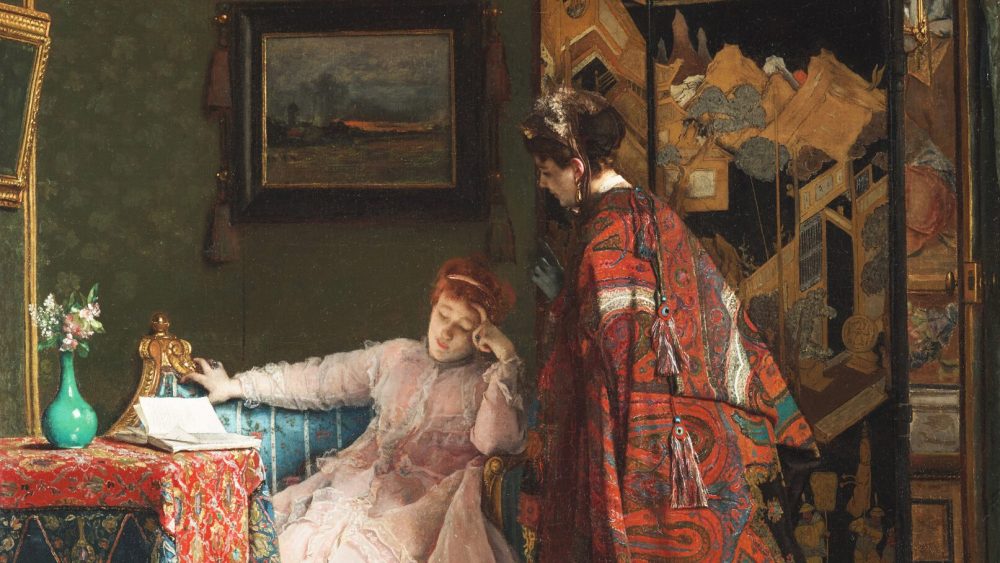LONDON — Fengmao, the China joint venture between Alibaba and Yoox Net-a-porter, will be terminated soon, according to an internal memo seen by WWD. It was sent by Yating Wu, chief executive officer of Fengmao, to employees on Thursday night.
YNAP declined to comment.
It is understood the dissolution of the China joint venture is part of a wider plan by YNAP to exit China in order to focus investments and resources on core and more profitable geographies.
You May Also Like
There could be another reason behind dissolution of the partnership. As reported, Compagnie Financière Richemont is hoping to sell YNAP this year, and may be looking to tidy up the business and wind down any long-standing partnerships.
Richemont has already classified YNAP as a discontinued operation, and said last month during a results call that it has been making progress on the sale.
“There are very many parties still in talks, and private equity has not exited” the YNAP discussions, said Richemont chairman Johann Rupert. Burkhart Grund, Richemont’s chief finance officer, added: “We hope to be able to report more on progress later in the year.”
Richemont also revealed that sales at YNAP declined by 14 percent in fiscal 2024 “in a challenging environment for luxury e-commerce.”
Net-a-porter entered the Chinese market in 2013 and launched a mainland China operation with industry veteran Claire Chung appointed as general manager in 2015. The same year, Net-a-porter’s off-season sister operation, The Outnet, exited the Chinese market due to stiff competition.
In 2018, in a bid to take up a bigger slice of the Chinese luxury e-commerce market, Richemont signed a strategic partnership with Alibaba Group to bring the retail offerings of YNAP to Chinese consumers via Fengmao.
A year later, Net-a-porter opened its flagship on Tmall’s Luxury Pavilion offering a wide selection of more than 130 luxury and designer brands such as Brunello Cucinelli, The Row, Balmain, Isabel Marant, Jimmy Choo and Tom Ford. The same year, Yoox closed its China website.
The joint venture happened at a time when Alibaba was looking to gain fashion credibility and court major luxury players such as LVMH Moët Hennessy Louis Vuitton and Kering. It also wanted to knock out arch rival JD.com, which was backing Farfetch at the time in a bid to dominate the luxury space.
The partnership with YNAP helped Alibaba to populate its search results with legitimate luxury products and urge brands to sign direct deals with the platform.
Richemont and Alibaba took their relationship to the next level in 2020, partnering with Farfetch on a landmark deal that aimed to give Farfetch “enhanced access to the China market” and accelerate the digitization of the global luxury industry.
But China’s digital shopping boom came to an end in 2021 when the local authorities began to crack down on the tech sector. Two years later, Farfetch collapsed into administration, and was later sold to South Korea’s Coupang at a knockdown price of $500 million.
At the same time, Alibaba has been struggling to maintain a high level of growth post-pandemic. It is now facing stiff competition from physical luxury stores in China, which have gotten a major upgrade over the past five years.
Today, there are many ways for Chinese fashion consumers to shop for luxury. They no longer have to rely on Tmall.
The popular social commerce platform Xiaohongshu, for example, has become the preferred partner for Louis Vuitton in China.
Vuitton’s experimental resee livestreaming for the pre-fall 2024 collection, unveiled in Shanghai, attracted more than 470,000 unique visitors, setting a record for luxury livestreaming on Xiaohongshu.
At the same time, JD.com began to offer omnichannel solutions to luxury brand partners in 2020 and has attracted a slew of high-profile names to sell on the platform, bringing Alibaba’s dominance in the realm of luxury e-commerce in China to an end.



